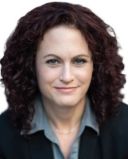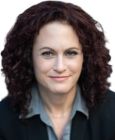Health
That Feeling May Be Your Privilege Cracking
What COVID can teach us about inequity and compassion.
Posted May 20, 2020 Reviewed by Gary Drevitch
It goes without saying that the last few months have been an incredibly difficult time. Our worlds have changed, perhaps forever. The safety and security we once took for granted has been upended, and we are all still trying to find our footing.
This situation has led me to reflect not on deprivation, but on privilege. Because it occurs to me that the very things that are grinding many of us down at the moment—uncertainty, instability, feeling out of control of our circumstances, feeling hopeless, despairing that things won't get better, having trouble concentrating or being motivated—are indicators of privilege that has been disrupted. This is not to suggest that these feelings aren’t real or valid. They absolutely are. But we are feeling them precisely because they mark such radical departures from our usual everyday lives.
As an anthropologist, I spend a great deal of time learning and thinking about cultures and societies other than my own. And one thing that quickly becomes clear when we take a global perspective is that expectations of an orderly, predictable, world where we have agency and the ability to affect the circumstances in which we live is a distinctly unusual state of affairs. These are properties of what social scientists and psychologists call WEIRD societies (Western, Educated, Industrialized, Rich, Democratic). WEIRD societies make up only a tiny sliver of the world's population (Henrich, Heine, and Norenzayan 2010). The ways most Americans experience the world, then, puts them in a distinct minority.
Not only this, but not all Americans have access to the same kinds of resources and opportunities. We know from public health research, for example, that African Americans and other people of color are disproportionately affected by a variety of health concerns coupled with reduced access to healthcare, which is further compounded by the everyday micro- and macroagressions of racism and socioeconomic disadvantage. This leads to a weathering effect (Geronimus 1992) that has profound effects on outcomes, including in the current pandemic (Sanford and Carter 2020). And people of all races and ethnicities living in poverty contend daily with uncertainty, instability, and feeling out of control of their circumstances, which can lead to a sense of foreshortened future and hopelessness as well as difficulties making decisions or taking proactive steps (Mani et al., 2013).
When disadvantaged groups in our own country or people in other societies can't somehow muster the wherewithal to "pull themselves up by their bootstraps," they are often blamed for not trying hard enough, for not taking advantage of all the opportunities on offer, for somehow "deserving" their beleaguered state. Yet when we privileged folks get but a taste of similar conditions, we find it hard to cope and our worlds fall apart, leaving us to wonder how we will ever get back on track.
I want to be clear that I am not engaging in a "whose suffering is worse?" exercise. It is not a competition—suffering is suffering, and the current situation has produced very real and very dire consequences for millions and millions of people. What I do want to do, however, is to invite us all to reflect upon what that suffering can teach us about broader scale structures that frame our collective human lives and the kinds of challenges people less fortunate than us deal with every single day—not to minimize our own struggles, but to mobilize them toward a different end. Can my difficulties feeling motivated to do regular work in the midst of this crisis give me more compassion for the person who lives in insecurity every day, yet rides three busses to get to a minimum wage job? Can my challenges concentrating during the pandemic help me understand a bit better why some kids struggle at school when they don't know what might be waiting for them out on the street or at home? Can this experience lead me to ask different questions or pay attention to different information before making judgments about people in another society or a country's level of "development" or "progress"?
This is, indeed, an unprecedented time. Let's use it to gain some unprecedented insights about ourselves, about others, and about the world we live in.
References
Geronimus, A. T. (1992). The weathering hypothesis and the health of African-American women and infants: evidence and speculations. Ethnicity & Disease. 2(3), 207–221.
Henrich, J., Heine, S., & Norenzayan, A. (2010). The weirdest people in the world? Behavioral and Brain Sciences, 33 (2-3), 61-83.
Mani, A., Mullanainthan, S., Shafir, E., & Zhao, J. (2013). Poverty Impedes Cognitive Function. Science, 341 (6149), 976-980.
Sanford, E. & Carter, C. (2020). From Spanish Flu to COVID-19: Race, Class, and Reopening in St. Louis. Riverfront Times, May 13, 2020.


